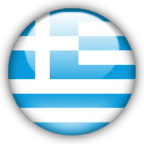|
- - -
Greece
BASIC INFORMATION ABOUT THE STRUCTURE OF SCIENCE IN GREECE
Most publicly supported research takes place in universities under the Ministry of National Education and Religious Affaires and the Ministry of Development and its institutes, such as the National Hellenic Research Foundation and the National Documentation Centre.
SUMMARY REVIEW OF SCIENCE & TECHNOLOGY COOPERATION WITH BELARUS
Since 2001 through the Calls of Belarusian Republican Fund on Fundamental Research (BRFFR) 2 Belarus-Greece research projects bilaterally financed have been and are being fulfilled.
Greek- Belarusian scientific cooperation has also been taking place in the context of European science programmes, such as the EU Framework Programmes for Research & Technological Development.
MOST IMPORTANT SCIENCE & RESEARCH ACTIVITIES WITH RUSSIA
The National Documentation Centre is supervised by the General Secretariat for Research & Technology of the Ministry for Development and has been operating since 1980 at the National Hellenic Research Foundation. In the context of the EU Framework Programmes for Research, it has developed a number of activities in Eastern Europe & Central Asia (EECA) which aim at raising the awareness of the EU Framework Programmes and at increasing EECA participation in projects funded by the European Community, thus and promoting and expanding the European Research Area. Specifically, the National Documentation Centre acts as:
Coordinator of the project «Opening up New and Emerging Science and Technology in NIS countries» (NIS-NEST);
Partner in the project «Expanding ERA Over Russia» (RusERA-EXE);
Partner in the project «Ideal-IST- Your Global Partner Search & Support Network for Your ICT Projects» (Ideal-IST).
Links to the websites of these projects are indicated below (see «Where can I find more informa-tion»).
Finally, the National Documentation Centre acts as Greek FP7 National Contact Point (NCP) in the following FP7 thematic priorities:
Specific Programme «Cooperation»: Information & Communication Technology; Energy; Socioeconomic Sciences & the Humanities;
Specific Programme «Ideas»;
Specific Programme «Capacities»: Research Infrastructures; Regions of Knowledge; Research Potential.
As NCP in these thematic priorities, the National Documentation Centre is part of the pan-European NCP networks in each of these areas and cooperates with the corresponding NCPs in Belarus and other Eastern European countries.
OPPORTUNITIES FOR SCIENCE & RESEARCH COOPERATION GREECE - RUSSIA
The Ministry of National Education and Religious Affaires
Following the Lisbon Strategy's goal to open education and training to the world, higher education institutions in Greece have established programmes with other countries for the joint development of innovative activities and the mobility of students, academics and researchers. The Ministry of National Education and Religious Affaires grants scholarships, mainly for language learning.
The Ministry of Development
The sectors chosen for funding by the Third Community Support Framework are: renewable energy sources; food and hydro culture; knowledge-intensive culture and tourism; sport; sea transport; health, biomedical, diagnostic and therapeutic methods; natural environment (atmo-spheric, sea, water dynamic, forest fires, recycling etc.); structured environment and earthquake protection; new forms of organisation for businesses; labour and training; e-learning; e-business. Additionally, one of the policy priorities of this Ministry is the creation of stable organisational structures for technological forecast research activities (technology foresight).
Within the EU framework
The National Documentation Centre/National Hellenic Research Foundation (EKT/NHRF)
is the backbone of the national infrastructure for scientific documentation, online information and support services on science, research and technology. It is supervised by the General Secretariat for Research & Technology of the Ministry for Development and has been operating since 1980 at the National Hellenic Research Foundation (NHRF).
The Centre's strategic aim is to develop, collect, manage and provide science & technology content. Its services include support to organisations, researchers and SMEs for their participation in EU and national RTD activities, the dissemination and exploitation of R&D results, and the organisa¬tion of conferences, workshops and information events. EKT is Greek National Contact Point for FP7 and the e-Content and e-ContentPlus programmes. It operated as NCP for the previous EU Framework Programmes as well. EKT is also the coordinator of the Hellenic Innovation Relay Centre (HIRC).

© National Academy of Sciences of Belarus, 2011
|
|


